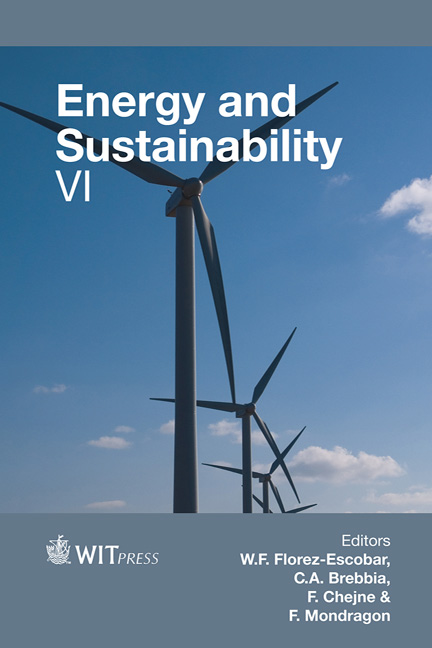Electric-solar Boats: An Option For Sustainable River Transportation In The Ecuadorian Amazon
Price
Free (open access)
Transaction
Volume
195
Pages
10
Page Range
439 - 448
Published
2015
Size
2,634 kb
Paper DOI
10.2495/ESUS150371
Copyright
WIT Press
Author(s)
F. Guamán, J. Ordoñez, J. L. Espinoza, J. Jara-Alvear
Abstract
Accessibility to the Ecuadorian Amazonian region is critical due to its high level of isolation and lack of infrastructure, which restricts people’s mobility to long walks, river boats, small planes or a combination of them. Building roads in the Amazon region will expedite accessibility and socio-economic development; however it has a high environmental impact. Finding alternative solutions for transportation without endangering the Amazon ecosystem is a challenge for sustainability. Using the extensive network of rivers in the Amazon is becoming a potential solution for transportation. However, this mean of mobility faces its own drawbacks related to fuel cost and availability, environmental impacts and fuel smuggling through the border impacting national security. Electric canoes coupled with renewable energy systems represent an alternative that has been successfully applied in several parts of the world, including Galapagos-Ecuador. Therefore, this paper aims to present a technical-economic analysis of solar canoes to be used in rivers of the southern part of the Ecuadorian Amazonian where more than 500 indigenous families live. These communities now have electricity, through individual photovoltaic systems from the “Yatsa Ii Etsari” project developed by the local utility. The results show that solar canoes are a technical and economical option for autonomous navigation up to 4 hours, representing a sustainable alternative for river transportation in the Ecuadorian Amazon.
Keywords
electric solar boats, Amazon, photovoltaic, river transport





